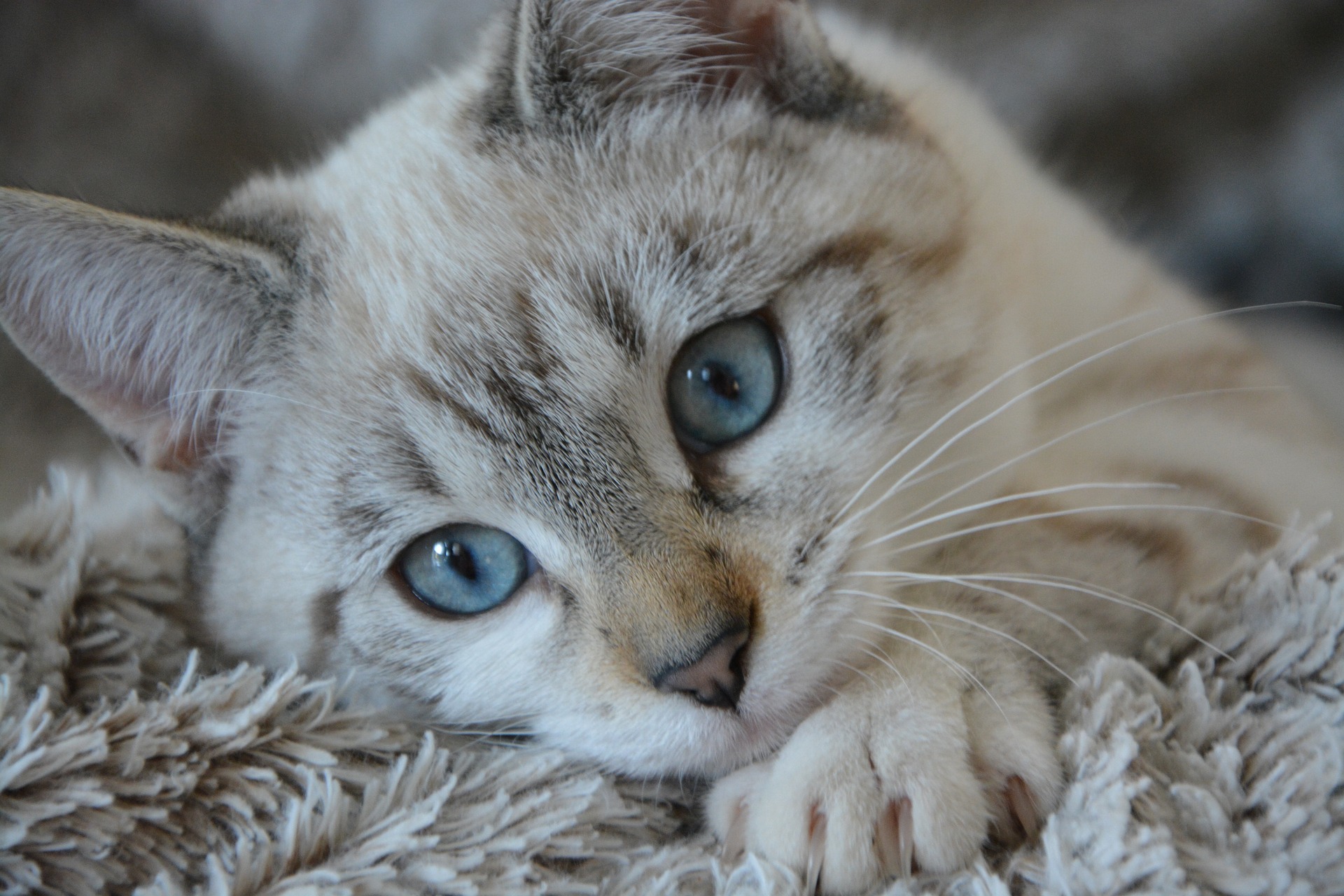Last Updated on May 20, 2023 by Pauline G. Carter
Cats generally live for 12 to 16 years. Cats are a great addition to any household.
They are cute, cuddly and often become members of the family rather than just pets. As a cat owner, it’s important to know how long your furry friend is expected to live in order to provide them with the best care possible.
The average lifespan of a cat is 12 to 16 years, but some cats have been known to live into their twenties. The length of a cat’s life can depend on a variety of factors such as genetics, lifestyle, and healthcare. In this article, we will take a closer look at the factors that determine a cat’s lifespan and what you can do to help your feline friend live a long and healthy life.

Credit: www.vets-now.com
Average Lifespan Of Cats
The Average Lifespan Of An Indoor Cat Vs. An Outdoor Cat
When it comes to the average lifespan of cats, various factors affect how long they live. Indoor cats tend to live longer than outdoor cats since they are more protected from dangers such as traffic accidents, fights with other animals and exposure to diseases.
Indoor cats also lead more sedentary lifestyles, which can increase the risk of obesity, but also reduce the energy they spend on outdoor activities that can be dangerous.
On the other hand, outdoor cats face more risks that can affect their lifespan, such as injuries obtained from exploring the outside world and fighting with other cats. A cat that is allowed outside may also eat questionable food and be exposed to more diseases, which can impact their overall health.
The Impact Of Gender And Breed On A Cat’S Lifespan
Gender and breed can also play a role in how long a cat lives. According to one study, female cats tend to live longer than male cats, with the latter being more likely to experience various health issues throughout their lives.
Breed can also have an impact on a cat’s lifespan, with some breeds living longer than others. For example, siamese and burmese cats tend to have longer lifespans compared to other breeds, while persian and himalayan cats may face more health issues and have shorter lifespans.
What Are Some Signs Of A Healthy Cat?
As a cat owner, it’s important to know the signs of a healthy cat to ensure their well-being.
- A shiny, soft coat that is free from matting
- Clear, bright eyes without any discharge
- Clean ears without any unpleasant odors or discharge
- Healthy teeth and gums, without any signs of discoloration, inflammation, or bad breath
- A healthy appetite and normal bowel movements
- A playful, curious demeanor with no signs of lethargy or depression
By keeping an eye out for these signs, you can identify when your cat may need extra care or veterinary attention to maintain their health.
Factors That Influence Lifespan Of Cats
Cats are adorable creatures that can become our companion for many years. In general, cats live up to 15 years, but some can exceed this life expectancy. The lifespan of cats depends on several factors that can influence their longevity.
Here are some of the important factors that could play a part in determining a cat’s lifespan.
Diet And Nutrition – How It Affects Lifespan
A balanced diet that provides all the essential nutrients is crucial to maintaining a cat’s health and prolonging its life.
- Cats are obligate carnivores, which means they need animal protein to survive. Therefore, it is important to feed your cat with a high-quality cat food that contains adequate levels of animal protein.
- Avoid feeding your cat with table scraps or food intended for human consumption, as these foods can be harmful to your cat.
- Make sure your cat has access to clean and fresh drinking water at all times.
- Obesity can have a significant effect on a cat’s health and lifespan. Ensure that your cat’s diet has the appropriate number of calories based on their age, size, and activity level.
- Discuss with your veterinarian about the use of supplements that can improve your cat’s nutritional health.
Medical Care – Routine Checkups And Necessary Vaccinations
Regular visits to the veterinarian can help extend a cat’s life by finding potential health problems earlier.
- Schedule routine wellness checkups with your veterinarian. Regular check-ups allow early detection and intervention of potential health issues.
- Vaccinations can prevent diseases that can shorten a cat’s lifespan. Discuss with your veterinarian about the appropriate vaccination schedule.
- Keep your cat’s dental health in check. Regular dental checkups, teeth cleaning, and prevention practices help maintain oral hygiene and boost overall health.
Physical Activity – The Benefits (And Dangers) Of Keeping A Cat Active
Physical exercise is essential to keep your cat healthy, both physically and mentally. However, there are risks to consider while encouraging physical activity.
- Regular exercise can improve a cat’s circulation, muscle tone, digestion, and overall health.
- Playtime and physical activity options like a scratching post or a cat tree can reduce boredom and improve mental health.
- Outdoor activities are a great source of exercise for cats. However, keeping them on a leash or in an enclosed area is essential to reduce the risk of getting lost or injured.
- Be cautious while introducing new games or activities to your cat. Ensure that it is safe, and it does not pose any harm.
- Avoid over-exercising cats, especially those with pre-existing health issues.
By keeping these factors in mind, you can help ensure that your cat lives a long and healthy life. Remember, every cat is unique; therefore, it’s vital to discuss any health concerns with a veterinarian.
Common Health Problems In Cats
How Long Do Cats Live?
Cats are a popular pet choice, and for a good reason- they make great companions. They have a great lifespan, and on average, cats can live for 15 years or more. However, just like any other living being, cats are susceptible to various health issues that can ultimately affect their lifespan.
In this blog post, we’ll discuss some of the common health problems in cats and provide practical information on how to take care of senior cats and promote longevity.
Common Health Issues Faced By Cats In Different Stages Of Life
Cats, like humans, can face different health issues in various stages of life.
- Kittens (up to 6 months): Kittens that are less than six months old are especially susceptible to respiratory infections, diarrhea, and digestive problems. Also, they should be vaccinated within this period to protect them from serious illnesses.
- Adult cats (1 to 7 years): As cats reach adulthood, they may experience dental problems, obesity, and urinary tract infections. If not treated, these issues can lead to more severe health conditions.
- Senior cats (7+ years): Senior cats are susceptible to many health issues associated with aging, such as arthritis, kidney disease, and cancer.
Warning Signs Of Diseases Or Illnesses In Cats
Watching out for warning signs of illnesses in cats is essential to keep them healthy.
- Changes in behavior: If you notice your cat exhibiting a sudden change in behavior, such as becoming more withdrawn or aggressive, this may be a warning sign.
- Loss of appetite: Loss of appetite in cats is never a good sign, and it may indicate an underlying health problem.
- Increased thirst or urination: If your cat seems excessively thirsty or has started producing more urine, it could be a sign of kidney disease or diabetes.
- Changes in litter box habits: If your cat starts going outside the litter box or produces little to no urine, this could be a sign of a urinary tract infection.
How To Care For Senior Cats And Promote Longevity
Caring for senior cats requires special attention and care to ensure they live a fulfilling and healthy life.
- Regular veterinary check-ups: Regular vet visits can catch any issues early and help prevent them from turning into severe health conditions.
- Special diet: Senior cats require a special diet that is low in calories and specifically formulated for their aging body requirements.
- Encourage exercise: Regular exercise can help keep senior cats stay healthy both physically and mentally.
Cats are amazing creatures, and they can live a long and healthy life with the right care and attention. Paying attention to their warning signs of illnesses and providing proper care can ensure that they remain by your side for many years to come.
Frequently Asked Questions On How Long Do Cats Live?
What Is The Average Lifespan Of A Cat?
On average, cats live for around 15 years. However, indoor cats tend to live longer than outdoor ones.
What Are Some Factors Affecting A Cat’S Lifespan?
Genetics, nutrition, and level of care affect a cat’s lifespan. Spaying/neutering, vaccinations, and dental care can help as well.
How Can I Ensure My Cat Lives A Long Life?
Provide a healthy diet, regular vet checkups, and a safe indoor environment. Play with your cat and give them plenty of love and attention.
Do Different Breeds Of Cats Have Different Lifespans?
Yes, the lifespan of cats varies by breed. Generally, mixed breed cats live longer than purebred ones.
Can I Do Anything To Prolong My Cat’S Life?
Yes, you can extend your cat’s life by keeping them at a healthy weight, providing regular exercise, and keeping up with medical needs.
Conclusion
In essence, the lifespan of cats depends on various factors such as breed, health, and lifestyle. However, on average, cats can live for up to 16 years; some even reach their 20s and above if properly taken care of. Pet owners play a crucial role in ensuring their fur babies live the longest, healthiest, and happiest lives possible.
From regular vet check-ups and vaccinations to proper nutrition and exercise, giving cats a healthy, stress-free environment is key. At the same time, pet owners must also be able to recognize the signs of aging and provide the necessary support and accommodations.
Ultimately, knowing how long cats live and what factors impact their lifespan can help pet owners become more responsible and loving caregivers. May we all strive to create a nurturing and safe haven for our feline friends.


